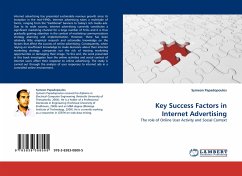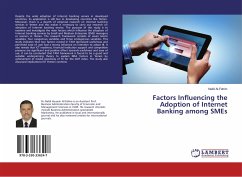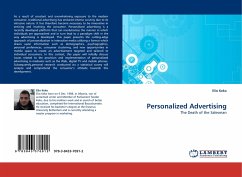Internet advertising has presented sustainable revenue growth since its inception in the mid-1990s. Internet advertising takes a multitude of forms, ranging from the "traditional" banners to today's rich media ads. Due to its wide success, internet advertising currently constitutes a significant marketing channel for a large number of firms and it is thus gradually gaining attention in the context of marketing communications strategy planning and implementation. However, there has been relatively little empirical research and actionable knowledge on the factors that affect the success of online advertising. Consequently, when relying on insufficient knowledge to make decisions about their internet marketing strategy, companies run the risk of missing marketing opportunities or damaging their image. To this end, the work presented in this book investigates how the online activities and social context of internet users affect their response to online advertising. The study is carried out through the analysis of user responses to internet ads in a controlled online environment.
Bitte wählen Sie Ihr Anliegen aus.
Rechnungen
Retourenschein anfordern
Bestellstatus
Storno








